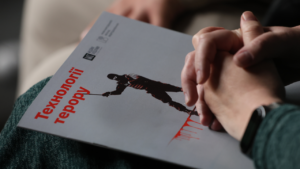Arbitrary detentions and capture of civilian hostages in the northern regions of Ukraine. Analysis of documented testimonies

Since the beginning of the armed aggression of the Russian Federation (RF) against Ukraine in 2014, the aggressor state has been detaining civilians in the occupied territories of Ukraine. The Media Initiative for Human Rights (MIHR) has been researching such facts since 2016. Since the onset of a full-scale invasion on 24 February 2022, there has been a surge in unlawful detention of civilians in the occupied territories by the Russian military — often without any justifiable reason.
As of May 2023, MIHR has identified 1168 civilian hostages held in the Russian Federation and occupied territories of Ukraine. The actual number might be 5-7 times higher. In May 2023, the Ministry of Internal Affairs of Ukraine reported on 23,000 individuals who are officially considered missing under extraordinary circumstances due to hostilities. In particular, they included the persons deprived of personal liberty as a result of the armed aggression of the Russian Federation against Ukraine. Some of the missing individuals are being held by Russia in the occupied territories of Ukraine while others have been transferred to the territory of the Russian Federation.
In the report dated 27 June 2023, the OHCHR identified a total of 161 detention facilities used for holding individuals in connection with the Russian aggression against Ukraine. Out of the total, 124 facilities are located in the territory of Ukraine occupied by the Russian Federation — in particular, 5 of them are located in Crimea. The remaining 35 detention facilities which include pre-trial detention centers (SIZOs), penal colonies, and temporary tent camps, are in the Russian Federation. Furthermore, the OHCHR investigators have discovered two locations located in the Republic of Belarus which are being used by the Russian armed forces as temporary or transit detention facilities for the individuals detained in connection with the armed conflict including prisoners of war who were transferred from the northern regions of Ukraine.
MIHR has identified over 80 active detention facilities in the occupied territories of Ukraine and in Russia. According to the victims’ accounts, Ukrainians were apprehended without their personal belongings and forcibly relocated to specifically designated facilities in the Russian Federation including detention centers and prisons.
This analytic describes the detention facilities in three oblasts: Kyiv, Chernihiv, and Sumy oblasts as well as the routes of transporting civil detainees based on specific evidence. The second part of the document contains our assumptions as to the possible qualification of the actions committed against the civil population of the occupied territories.
Read the full text of the analysis below:
The material is published with the support of the Prague Civil Society Centre.






